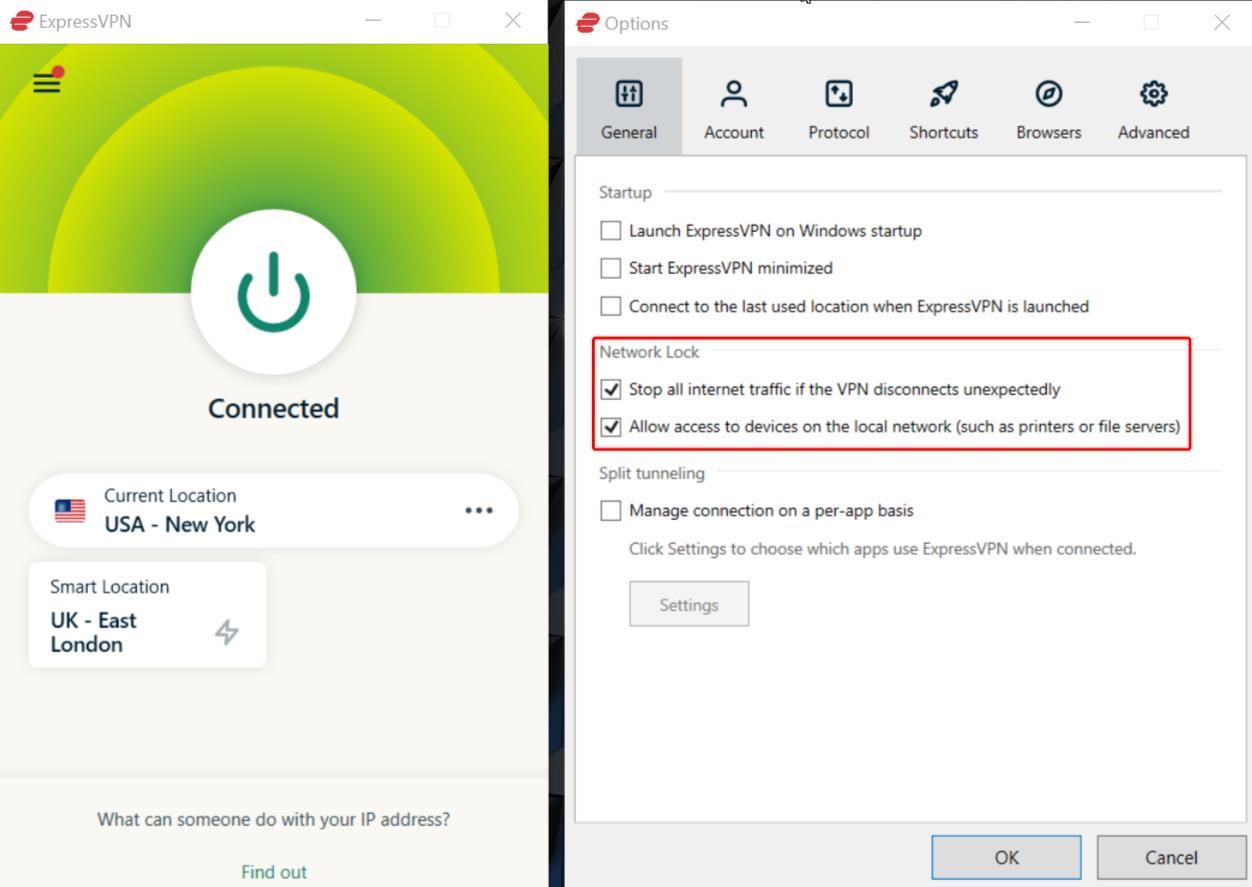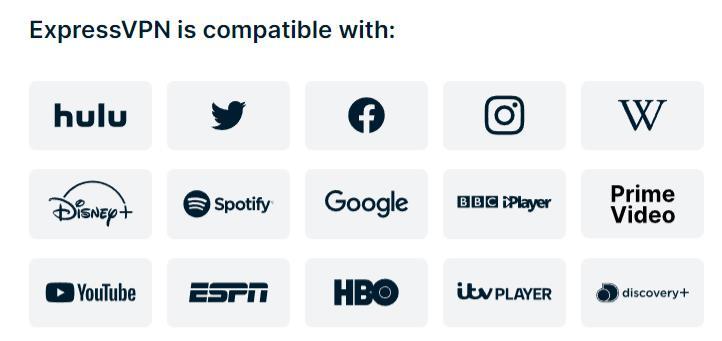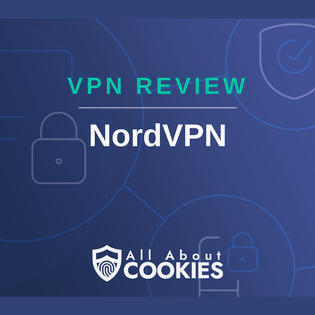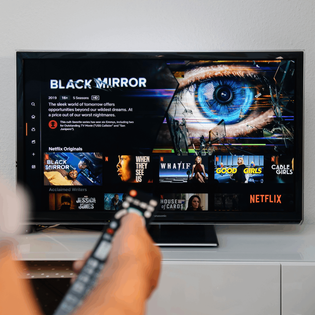Advertiser Disclosure
All About Cookies is an independent, advertising-supported website. Some of the offers that appear on this site are from third-party advertisers from which All About Cookies receives compensation. This compensation may impact how and where products appear on this site (including, for example, the order in which they appear).
All About Cookies does not include all financial or credit offers that might be available to consumers nor do we include all companies or all available products. Information is accurate as of the publishing date and has not been provided or endorsed by the advertiser.
Editorial Policy
The All About Cookies editorial team strives to provide accurate, in-depth information and reviews to help you, our reader, make online privacy decisions with confidence. Here's what you can expect from us:
- All About Cookies makes money when you click the links on our site to some of the products and offers that we mention. These partnerships do not influence our opinions or recommendations. Read more about how we make money.
- Partners are not able to review or request changes to our content except for compliance reasons.
- We aim to make sure everything on our site is up-to-date and accurate as of the publishing date, but we cannot guarantee we haven't missed something. It's your responsibility to double-check all information before making any decision. If you spot something that looks wrong, please let us know.
Best for speedy performance
-
Premium VPN offering strong security and ultra-fast speeds
-
Strict no-logs policy with independent audit
-
In-house Lightway protocol for more speed and security
-
More expensive than NordVPN, Surfshark, and CyberGhost
Best for the budget-conscious
-
Affordable plans
-
Works with popular streaming services
-
Drastically lower internet speeds
Are you in the market for a virtual private network (VPN) but don’t know where to start? We’ve put two of the best VPNs — ExpressVPN and PureVPN — to the test, so you can determine which is best for you.
ExpressVPN offers excellent performance, servers in over 90 countries, and good customer service. However, it’s one of the pricier options on the market. PureVPN is more affordable, but the experience suffers a bit compared to ExpressVPN.
In this review, we’ll compare ExpressVPN vs. PureVPN for pricing, features, speed, and more.
ExpressVPN vs. PureVPN: prices
ExpressVPN vs. PureVPN: features
ExpressVPN vs. PureVPN: internet speeds
ExpressVPN vs. PureVPN: compatibility and ease of use
ExpressVPN vs. PureVPN: customer service
ExpressVPN vs. PureVPN FAQs
ExpressVPN vs. PureVPN: Which is better?
ExpressVPN vs. PureVPN at a glance
On the surface, ExpressVPN and PureVPN are relatively similar. In fact, looking at the table below, the biggest difference would seem to be the price — PureVPN is quite a bit more affordable (or it can be, depending on the plan you choose).
- ExpressVPN: Best for speedy performance
- PureVPN: Best for the budget-conscious
How do ExpressVPN and PureVPN compare?
 ExpressVPN |
 PureVPN |
|
| Price | From $6.67/mo | From $1.97/mo |
| Max # of connected devices | 8 | 10 |
| 24/7 customer support | ||
| Compatibility | Windows, macOS, Linux, Android, iOS, and more | Windows, macOS, Linux, Android, iOS, and more |
| # of servers | Servers in 94 countries | 6,500+ servers in 70+ countries |
| VPN protocol | Lightway, OpenVPN, IKEv2 | OpenVPN, WireGuard, IPsec/IKEv2 |
| No-logs policy | No logs | No logs |
| Unblocks Netflix? | ||
| Learn more | Get ExpressVPN | Get PureVPN |
PureVPN, at its cheapest, runs several dollars cheaper than ExpressVPN. PureVPN also works on more simultaneous devices — 10, compared to eight for ExpressVPN. However, ExpressVPN differentiates itself in a few key areas: namely, performance, ease of use, and customer service.
Overall, both VPN providers are quite good, so the choice likely comes down to how important the price is. If you need the cheapest option, go for PureVPN. If you can pay a little more each month, though, you may have a better experience with ExpressVPN.
ExpressVPN vs. PureVPN: prices
 ExpressVPN |
 PureVPN Best Value
|
|
| Price range | $6.67–$12.95/mo | $1.97-$20.45/mo |
| Best value plan | 12-month plan for $6.67/mo | 24-month plan for $1.97/mo |
| Money-back guarantee | Yes — 30 days | Yes — 31 days |
| Learn more | Get ExpressVPN | Get PureVPN |
ExpressVPN prices range from $6.67–$12.95/mo, with the best deal being the 12-month plan for $6.67/mo. This is definitely not the most affordable VPN on the market, but you do get a lot for your money. Whether it’s enough to be worth the increased price, of course, is up to the individual.
Compared to ExpressVPN, PureVPN is much more affordable, with prices dipping as low as $1.97/mo. Granted, this does require a two-year plan, but many people won’t have an issue with that. This makes PureVPN a great option if you’re looking to save money on a VPN.
It’s worth noting that PureVPN has multiple tiers of plans in addition to multiple subscription lengths — if you want a password manager, end-to-end file encryption, and a personal privacy manager, you’ll need to pay a bit more. PureVPN also offers add-ons for port forwarding and dedicated IP, so there are several ways you can customize your subscription.
While neither VPN offers a free plan, ExpressVPN has a 30-day money-back guarantee, while PureVPN one-ups with a 31-day money-back guarantee. This gives you ample time to test out the VPN and decide if it’ll work for you.
ExpressVPN vs. PureVPN: features
| Feature |  ExpressVPN Best Features
|
 PureVPN |
| Number of servers | Servers in 94 countries (exact number not specified) | 6,500+ servers in 70+ countries |
| No-logs policy | No logs | No logs |
| VPN headquarters | British Virgin Islands | British Virgin Islands |
| Encryption | AES-256 | AES-256 |
| VPN protocol | Lightway, OpenVPN, IKEv2 | OpenVPN, IPsec/IKEv2, WireGuard |
| Kill switch | ||
| Split tunneling | ||
| Netflix support | ||
| Torrenting support | ||
| Learn more | Get ExpressVPN | Get PureVPN |
Both providers offer a similar security feature set. Each has strong AES-256 encryption, a kill switch, and split tunneling. They even have their headquarters in the same country—the British Virgin Islands.

Finally, each provider has a no-logs policy that’s been audited by independent companies. In fact, the same company performed the audits for both — KPMG. Neither provider showed any WebRTC leaks, and each successfully masked our IP address during DNS leak testing.
One of the most notable differences is their server networks. PureVPN boasts over 6,500 servers in over 70 countries. ExpressVPN doesn’t advertise how many servers it has, but it has them in 94 countries — significantly more than PureVPN. This could be important if you need to make it look like you’re in a specific country.
The VPN protocols are the other major difference. We’ll touch on this more later, but ExpressVPN performs quite a bit better than PureVPN in our speed tests, and some of this performance may be due to it using the custom Lightway protocol. Lightway was created for a faster and more secure experience. PureVPN offers OpenVPN, IPsec/IKEv2, and WireGuard, which are all still strong protocols.
ExpressVPN vs. PureVPN: streaming support
| Platform |  ExpressVPN Best Streaming
|
 PureVPN |
| Netflix | ||
| Amazon Prime Video | ||
| Hulu | ||
| BBC iPlayer | ||
| Disney+ | ||
| HBO Max | ||
| Learn more | Get ExpressVPN | Get PureVPN |
Both ExpressVPN and PureVPN support streaming from essentially all of the major platforms, including Netflix, Hulu, Amazon Prime, and Disney+. We had no real issues with either in testing — the only notable thing was that Netflix took a couple of minutes to load on ExpressVPN’s Toronto servers.
Major differences here will come down to performance. We’ll touch on this more in the next section, but suffice it to say that ExpressVPN tends to have much better speeds than PureVPN, which could make a difference when streaming in HD or (especially) 4K.

ExpressVPN vs. PureVPN: internet speeds
Because of how VPNs work (routing your traffic through extra servers, potentially far from your physical location), they tend to impact your internet performance. This generally takes the form of reduced speeds, and the difference can range from barely noticeable to dramatic.
For these reasons, we put every VPN we review through a series of performance tests to check how it affects internet speed. This consists of running a speed test on our plain, unsecured connection and then running the same test connected to various VPN servers in different locations.
ExpressVPN is the clear winner here, with noticeably better performance — particularly on U.S. servers, which are physically closer to our location. PureVPN actually failed our speed tests due to its drastic performance reductions across the board, with especially bad performance in the U.K.
ExpressVPN vs. PureVPN speed test results
| Server location |  ExpressVPN Best Speeds
|
 PureVPN |
| US |
|
|
| UK |
|
|
| AU |
|
|
| Learn more | Get ExpressVPN | Get PureVPN |
We also run tests to determine how each VPN impacts latency. Latency is the amount of time it takes for information to travel from one device to another — in this case, our computer to the VPN’s servers. High latency can cause delays in response time, most noticeable with gaming or video calls.
In our tests, ExpressVPN and PureVPN performed pretty similarly. PureVPN actually reduced our latency when connected to a U.S. server—we wouldn’t expect this to be normal, but it was a nice surprise. Other than PureVPN’s U.S. latency results, there was nothing out of the ordinary here.
ExpressVPN vs. PureVPN latency comparison
| Server location |  ExpressVPN |
 PureVPN |
| US | 16.42% worse | 38.18% better |
| UK | 155.97% worse | 223.64% worse |
| AU | 285.82% worse | 265.45% worse |
ExpressVPN vs. PureVPN: compatibility and ease of use
 ExpressVPN Best Interface
|
 PureVPN |
|
| Windows | ||
| macOS | ||
| Android | ||
| iOS | ||
| Linux | ||
| Router | ||
| Smart devices |
ExpressVPN and PureVPN both support basically every device and operating system you can imagine, from basic Windows computers and Chromebooks, to mobile apps for iOS and Android, to routers and a slew of smart devices. If you have a device, we’re confident you’ll be able to use one of these VPNs on it.
As for ease of use, we didn’t have major problems with either provider. They both feature clean interfaces and clearly indicate whether the VPN is connected or not. Of course, nothing is perfect — although we had a handful of relatively minor issues with each provider, we did find that ExpressVPN offered a smoother overall experience.
In particular, we had issues with PureVPN’s account creation, which required us to reset our password multiple times. We also found that pricing pages were confusingly inconsistent during signup.
ExpressVPN vs. PureVPN: customer service
 ExpressVPN Best Support
|
 PureVPN |
|
| 24/7 live chat | ||
| Phone | ||
| Support forums | ||
| Online guides |
Both providers offer a similar customer service experience. This includes 24/7 live chat and email but no phone support — unfortunately, par for the course with VPNs. That said, we tried the live chats for both providers in our testing and found them to be helpful, if a little slow.
Both providers also have comprehensive knowledge bases where you can find articles and guides on nearly any topic. Of the two, we find ExpressVPN’s site a little friendlier and more modern-looking, but either one will get the job done.
ExpressVPN vs. PureVPN: payment options
The way you pay for your VPN subscription matters more than you might think. Since these services are all about preserving privacy online, using a method that can be easily tied back to you may defeat the purpose. This is especially true in regions where using a VPN is frowned upon or banned.
Both ExpressVPN and PureVPN offer multiple ways to pay for their service, including standards like debit, major credit cards, PayPal, and cryptocurrency. However, ExpressVPN accepts a lot more methods overall, including a ton of niche credit cards and direct debit options, which may be handy for some users.
ExpressVPN payment options
- Prepaid/debit cards
- Credit cards
- PayPal
- Apple Pay
- Klarna
- Many more
PureVPN payment options
- Debit card
- Credit cards
- PayPal
- Paymentwall
- CoinGate (and other electronic wallets)
ExpressVPN vs. PureVPN FAQs
Is ExpressVPN legal in the US?
As a whole, VPNs are legal in the U.S. In fact, they’re legal in most of the world, apart from a handful of countries that bar them.
Is PureVPN reputable?
Yes, PureVPN has been around for a number of years and offers a dependable service. The only major gripe is that it used to be headquartered in Hong Kong, which was a potential privacy issue. However, it moved to the British Virgin Islands a few years ago — a much more neutral territory.
Is ExpressVPN blocked by Netflix?
Netflix generally attempts to block all VPNs, so it’s sort of a game of cat and mouse for them to keep ahead. At the moment, ExpressVPN is working fine with Netflix, but that can change — usually temporarily.
Which is better, NordVPN or PureVPN?
Overall, NordVPN is the better option. It tends to be faster and more consistent than PureVPN. Check out our full comparison for more details.
ExpressVPN vs. PureVPN: Which is better?
ExpressVPN is one of the best VPNs available. It offers a fantastic experience with great performance, servers in a ton of countries, and solid customer service. However, PureVPN is quite a bit more affordable, which may be appealing to some.
Ultimately, though, we have to give the nod to ExpressVPN as the better of the two. The faster performance and other niceties add up to a great VPN experience.
ExpressVPN vs. PureVPN alternatives
If neither of these providers does it for you, don’t worry — there are plenty of alternatives on the market. Some of our favorite VPN services are CyberGhost, NordVPN, and Surfshark.
- CyberGhost: CyberGhost is one of the most affordable VPNs on the market and has servers optimized for streaming in various regions.
Get CyberGhost | Read Our CyberGhost Review - NordVPN: NordVPN is a slightly more expensive option than CyberGhost, but it offers excellent performance, works with tons of streaming providers, and has a strong reputation as a top-tier VPN.
Get NordVPN | Read Our NordVPN Review - Surfshark: Surfshark is a powerful VPN that offers unlimited simultaneous connections, making it a great option for users who have a lot of devices under one roof.
Get Surfshark | Read Our Surfshark Review
-
Premium VPN offering strong security and ultra-fast speeds
-
Strict no-logs policy with independent audit
-
In-house Lightway protocol for more speed and security
-
More expensive than NordVPN, Surfshark, and CyberGhost







